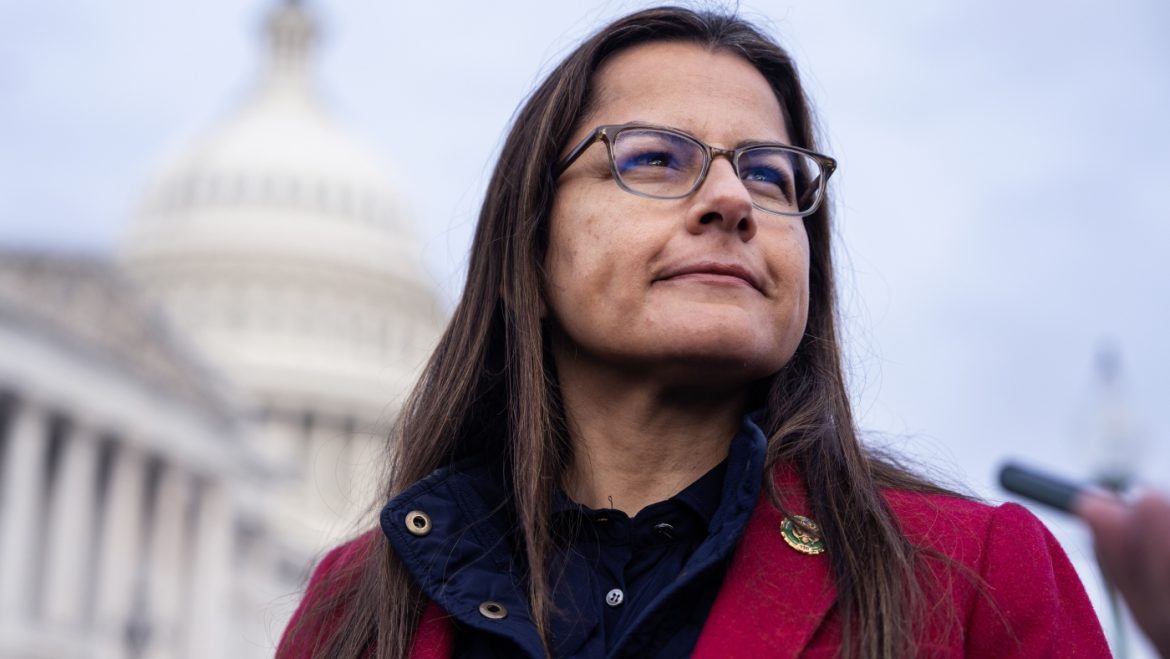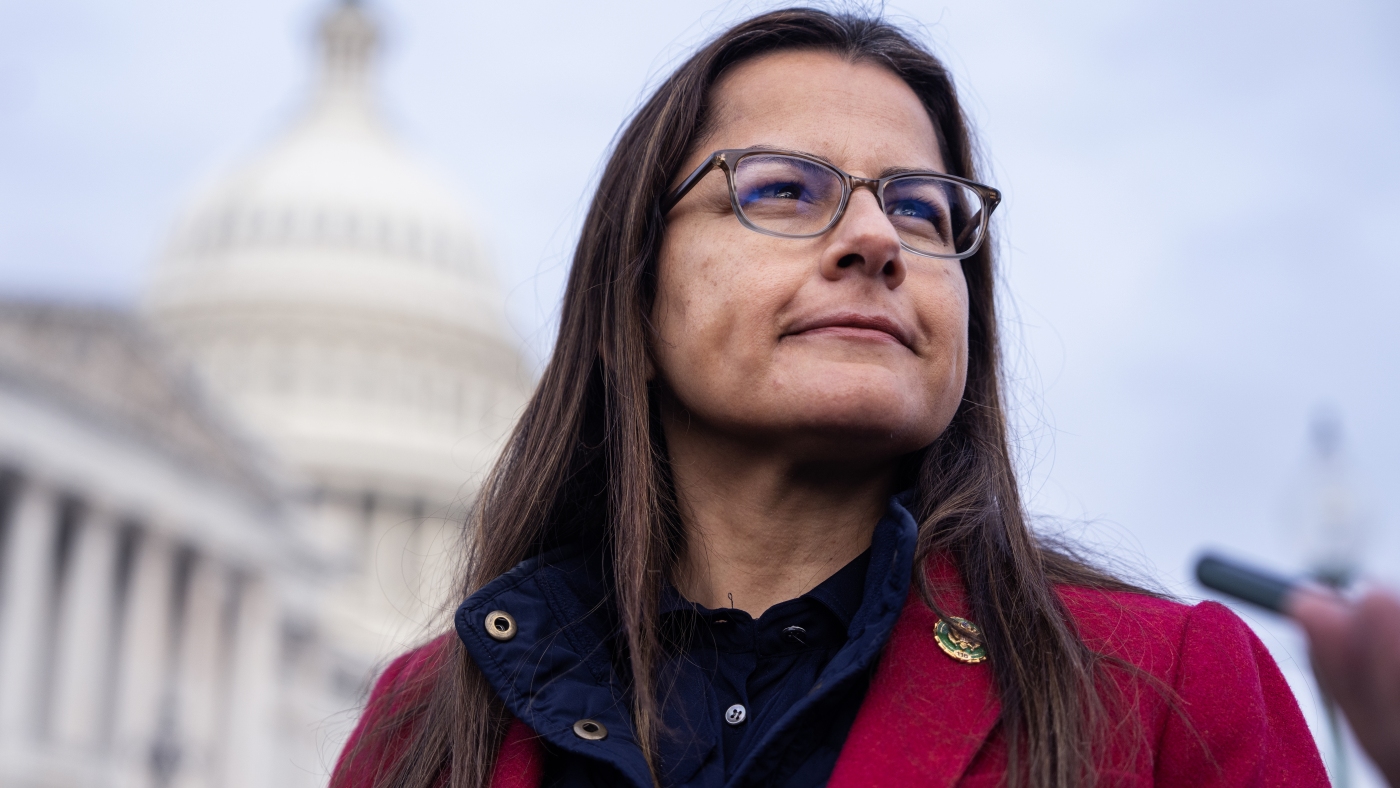Examining Democratic Rep. Nanette Barragán’s Response to National Guard Deployment in Los Angeles
The deployment of the National Guard to Los Angeles, ordered by then-President Donald Trump, has ignited significant controversy and sharp criticism from several Democratic leaders, most notably Rep. Nanette Barragán of California. This report explores Barragán’s perspectives, contextualizes her criticisms, and analyzes the broader political and social implications of this event.
—
The Context: National Guard Deployment Amid Immigration Protests
Amid escalating protests over immigration raids in Los Angeles, the federal government mobilized approximately 2,000 National Guard troops to support local law enforcement and quell civil unrest. The Trump administration framed these demonstrations as a form of “rebellion,” justifying the military presence as necessary to restore order.
California’s state government and Democratic representatives, however, viewed this intervention as an overreach of federal power, particularly because it was done without the consent of the state governor or local elected officials.
—
Barragán’s Critique: Accusations of Authoritarianism
Rep. Nanette Barragán vocally condemned the deployment as a “sign of a dictator,” emphasizing that taking control of the National Guard against the governor and elected officials’ will constituted a dangerous abuse of authority. Her frequent remarks include:
– Administration Overreach: Barragán framed the National Guard deployment not merely as a security measure but as an explicit Federal “takeover” of local governance, undermining established political processes.
– Hostility Toward Local Autonomy: She underscored that local leaders had the situation under control and that such federal military presence was unnecessary, suggesting that the move escalated tensions instead of resolving them.
– Labeling Trump’s Tactics: The Congresswoman referred to President Trump as wanting to act like a dictator, bolstering her argument that this was a political power play rather than a response proportional to the protests on the ground.
These points formed the core of her media appearances and statements in the hours and days following the deployment, highlighting her commitment to protecting local sovereignty and denouncing what she viewed as authoritarian strategies.
—
The Nature of the Protests and Law Enforcement Response
Barragán distinguished between peaceful protesters and those committing acts of violence. She asserted that:
– The genuine protesters were advocating against immigration raids and policies, emphasizing their peaceful intent.
– Violence and vandalism, such as burning cars, were actions of rioters not truly representative of the protest’s original goals.
– There was bipartisan agreement that violent behavior should be prosecuted but that broad militarized intervention masked this nuance.
This perspective reflects an attempt to humanize the protestors’ cause while rejecting the justification for a militarized federal response.
—
Wider Political Reactions and Implications
– California Officials’ Opposition: Governor Gavin Newsom echoed the sentiment, condemning the deployment as the act of a dictator rather than a president, signifying a stark political rebuke.
– Other Democratic Voices: High-profile Democrats like House Minority Leader Hakeem Jeffries and Senator Adam Schiff also criticized the action, with Jeffries labeling Trump a “wannabe dictator,” further polarizing the debate.
– Federal vs. State Tensions: The incident exemplified ongoing frictions in American federalism, especially regarding the control and command of the National Guard and the limits on presidential authority during domestic crises.
– Public Perception and Media: Contentions over the portrayal of events—whether protests were peaceful or riotous—fueled media battles, complicating public understanding and political consensus.
—
Rep. Barragán’s Political Profile and Advocacy
Nanette Barragán represents California’s 44th Congressional District and has built her political identity around social justice, environmental issues, and equitable governance. She has previously worked as an attorney and city official, positioning herself as a community advocate deeply connected to local concerns.
Her strong opposition to federal immigration enforcement raids in her district aligns with her broader stance against ICE (Immigration and Customs Enforcement) presence in local communities. The National Guard deployment added urgency to her calls for protecting immigrant rights and opposing what she sees as heavy-handed federal interventions.
—
Broader Lessons and Consequences
The conflict surrounding the National Guard’s presence in Los Angeles reveals several broader themes:
– Balance of Power: Questions about federal intervention in state affairs remain contentious, especially when the military is deployed in civilian contexts without state consent.
– Civil Liberties vs. Security: The deployment raised concerns about militarization of law enforcement and the potential suppression of constitutional rights to protest.
– Political Narrative and Propaganda: Labels like “dictator” function both as political critique and rhetorical framing, shaping the discourse and public reaction.
– Community Trust and Governance: The incident demonstrated how local communities and elected representatives can feel marginalized or undermined by federal decisions, staining relationships between government levels.
—
Conclusion: A Defining Moment in Contemporary Civil-Military Relations
Representative Nanette Barragán’s vocal condemnation of the National Guard deployment in Los Angeles stands as a powerful indictment of perceived federal overreach and authoritarian tactics amid social unrest. Her framing of the situation as a “dictatorial” takeover captures a moment of heightened tension in American politics where questions about governance, civil rights, and federalism collide visibly.
This episode underscores the delicate balance between maintaining public order and respecting the autonomy of state and local governments. It also reflects the broader national debates over immigration policy, protest rights, and the role of military forces on American streets. Barragán’s stance serves both as a call to protect democratic processes and as a reflection of deep political divisions over how power should be exercised in times of crisis.


